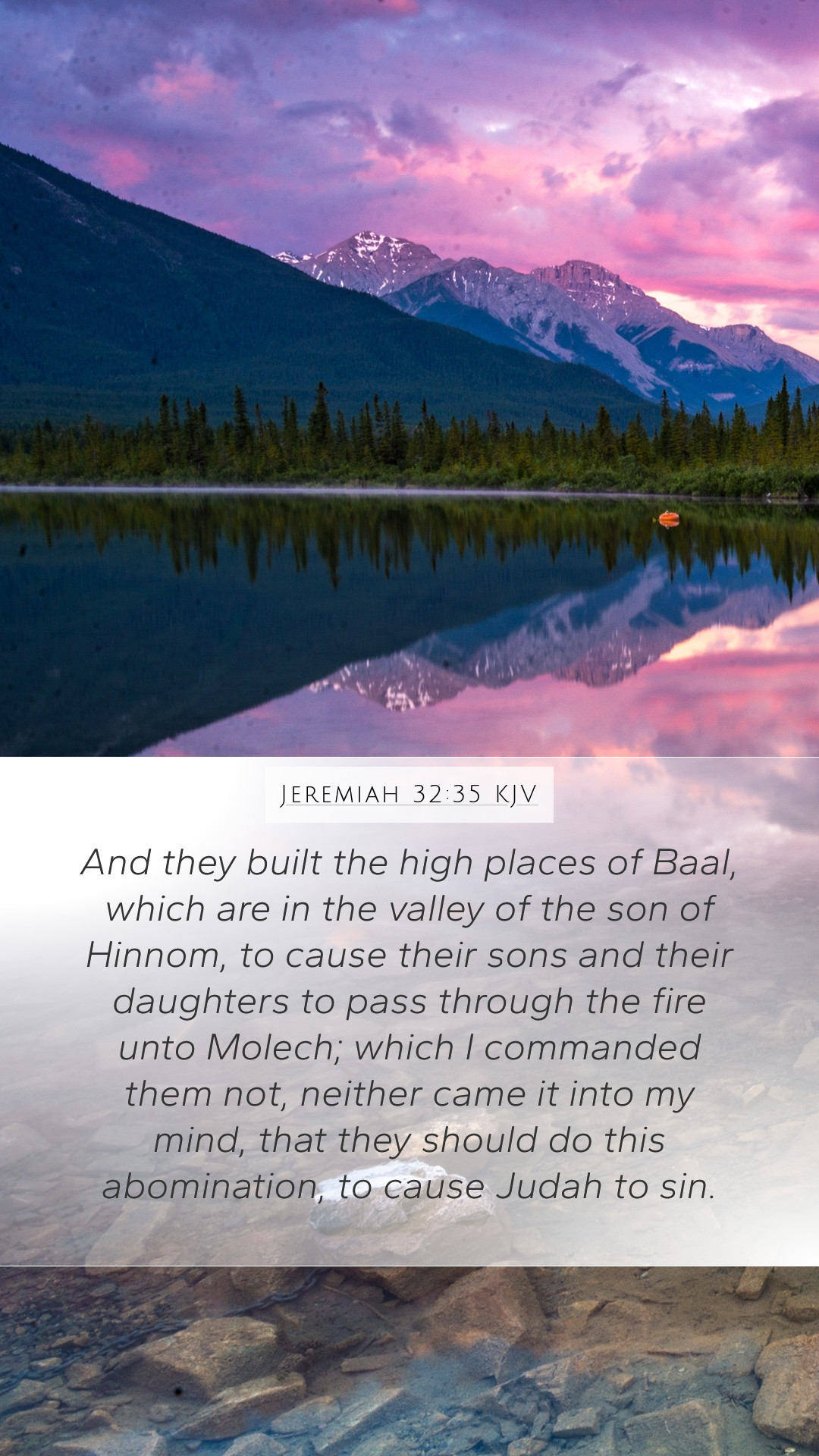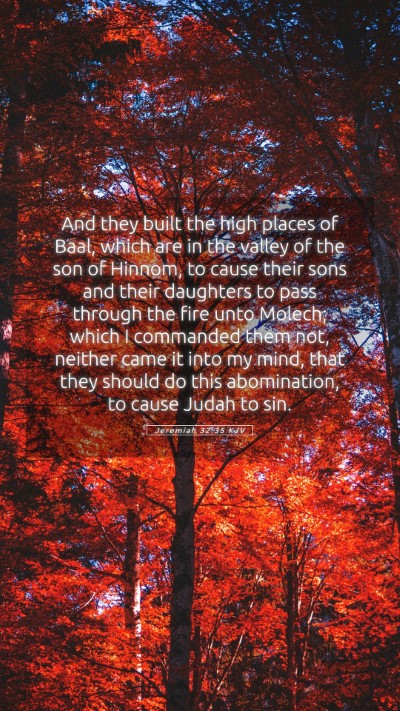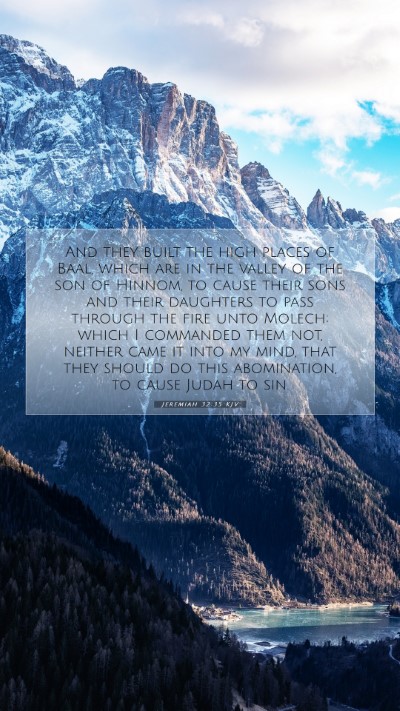Understanding Jeremiah 32:35
Bible Verse: "And they built the high places of Baal, which are in the valley of the son of Hinnon, to cause their sons and their daughters to pass through the fire unto Molech; which I commanded them not, neither came it into my mind, that they should do this abomination, to cause Judah to sin." (Jeremiah 32:35)
Bible Verse Meanings and Interpretations
This verse highlights the grave sin of idolatry practiced by the people of Judah. The act of sacrificing children to Molech, a pagan god, represents the darkest depths of apostasy and moral decay.
Contextual Analysis
- Historical Background: The practice of child sacrifice was not uncommon in the ancient Near East, and it was particularly associated with the worship of Molech, a deity revered by the Ammonites.
- Judah's Apostasy: Jeremiah's prophecy comes during a time when the nation has turned away from Yahweh, embracing foreign gods and practices that directly violate the covenant made with God.
- The Valley of Hinnon: This location, known for its association with abominable practices, serves as a powerful symbol of the consequences of turning away from God's commands.
Bible Commentary Insights
According to Matthew Henry, this verse serves to illustrate God's deep displeasure concerning the idolatry and wrongful practices of His people. He emphasizes the contrast between God's holiness and the impurities introduced by such sinful practices.
Albert Barnes adds that God explicitly forbade such acts; hence, the very idea that the people would engage in these abominations indicates a turning away from the God of their fathers. It implies a rejection of divine authority and reveals the heart's inclination towards evil.
Adam Clarke elaborates on the significance of the phrase "which I commanded them not." This statement underlines the importance of adhering to divine revelations and commands, as deviating from them leads to destructive consequences.
Spiritual Lessons from Jeremiah 32:35
- The Dangers of Idolatry: The narrative warns believers today about the peril of allowing secular influences to distort faith and lead them astray from God's paths.
- Value of Heeding God's Commands: A recurring theme throughout Scripture emphasizes the necessity of obedience to God's word, which is meant for our protection and well-being.
- The Severity of Sin: The verse illustrates how serious offenses against God not only affect the individual but can lead an entire nation into judgment and destruction.
Related Bible Cross References
- Leviticus 18:21: "And thou shalt not let any of thy seed pass through the fire to Molech."
- 2 Kings 23:10: "And he defiled Topheth, which is in the valley of the children of Hinnom, that no man might make his son or his daughter to pass through the fire to Molech."
- Jeremiah 7:31: "And they have built the high places of Topheth, which is in the valley of the son of Hinnom, to burn their sons and their daughters in the fire; which I commanded them not, neither came it into my heart."
Application of Jeremiah 32:35 in Daily Life
This verse challenges us to reflect on our worship practices and the influences we allow in our lives. It asks us to ensure that our devotion to God is pure and unwavering, free from the distractions and corruptions of modern-day idols, whether they be materialism, self-ambition, or cultural pressures.
Conclusion
In summary, Jeremiah 32:35 serves as a profound reminder of the consequences of forsaking God's commands. Its dire warning against the idolatry of ancient Judah is relevant today, encouraging believers to seek true worship, engage in meaningful Bible study, and apply the teachings of Scripture—as we strive for a deeper understanding of God's heart.


